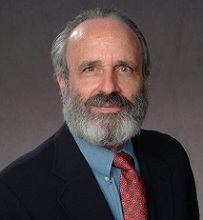 William A. Hyman
William A. Hyman
Professor Emeritus, Biomedical Engineering
Texas A&M University, w-hyman@tamu.edu
Read other articles by this author
In May 2015 I commented here on the then pending legislation in the House to limit the FDA with respect to the regulation of Clinical Decision Support systems (CDS). At that time there was related draft legislation in the Senate. The House subsequently passed a version of its CURES Act in July 2015 which included the Health Software section that limited FDA’s oversight. It was subsequently reported that the Senate would not take up this bill in this session. That report proved to be wrong because this month the Senate Health Education, Labor and Pensions (HELP) Committee approved a bill entitled The Medical Electronic Data Technology Enhancement for Consumers Health Act (MEDTECH). This is a somewhat revised version of last year’s draft.
CDS is addressed in part O-1-E of the new draft which appears to amend the definition of “medical device” to exclude software that “is intended to support or provide recommendations to a health care professional about prevention, diagnosis, or treatment; and…enables the health care professional to independently review the basis for each recommendation that the software presents such that it is not the intent that the health care professional rely solely on any specific recommendations or results provided by such software to make a clinical diagnosis or treatment decision. I say “appears to” here because the construction of the section is odd. It begins “The term ‘device’, as defined in section 5 201(h), shall not include the following” and then paragraph A and B are positive statements, ie shall not include xxx. C, D and E however begin with “Except” such that the full reading is “shall not include except…”. This is at best a double negative.
The “rely on” issue is one that has long intrigued me. As proposed for FDA exempt CDS software we would have a product that makes patient and situation specific recommendations but which the health care professional is not supposed to rely on. Developers of such software have long favored the do-not-rely-on posture because it might protect them from product liability. But it is also saying that this product isn’t necessarily very good. It might be more artificial stupidity than artificial intelligence, or maybe artificial mediocrity. One wonders how prominent the “do not rely on this recommendation” labeling will be. Will it be clear and conspicuous or buried in the type of fine print disclaimers we all routinely do not read, even if we check that we have?
The phrase “independently review the basis for” is also problematic in that it doesn’t tell us what this independent review might consist of. Does it mean that everything necessary for questioning the recommendation is contained within the software, or is it merely an invitation to go on line and do one’s own research Or does it just mean to use their own clinical judgment which they could have done in the first place. It is also clear that the ability to second guess the software goes down as the complexity of the situation goes up. Thus trivial recommendations can be checked but recommendations that are more meaningful would be increasingly more difficult to recreate.
Having exempted not-to-be-relied-on CDS from FDA regulation, the bill then says the Secretary of HHS “shall ensure” that such software is consistent with appropriate quality principles and standards for software development and validation. Such assurance would itself be a regulatory process now covering a product that is by definition no longer a medical device. The validation component is at the heart of CDS–are the recommendations valid over what specified population? If this provisions means that CDS software was still being regulated but just not as a medical device the effect would be marginal at best.
Of course clearing a committee is far from passage, so stay tuned.
